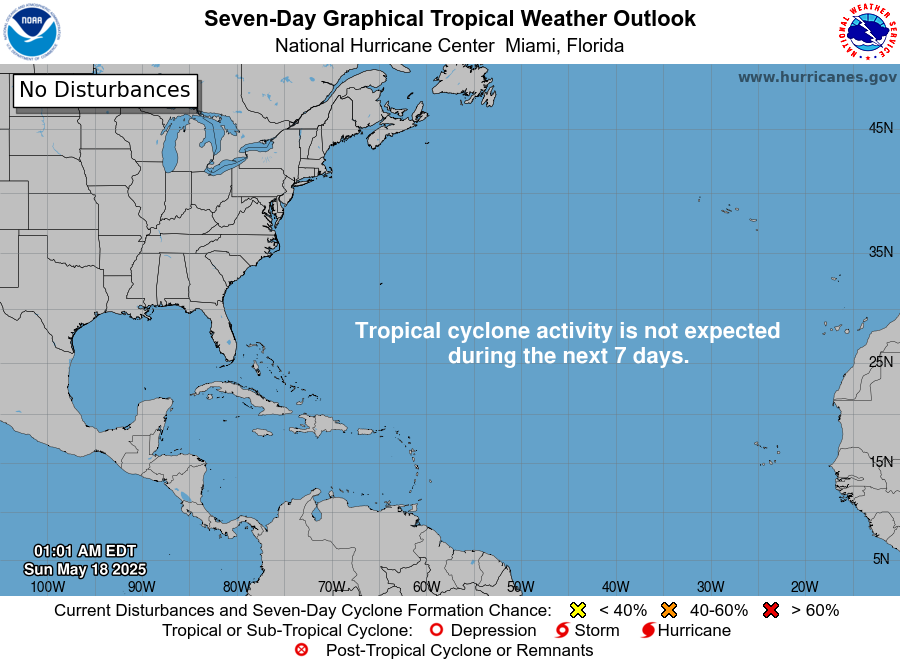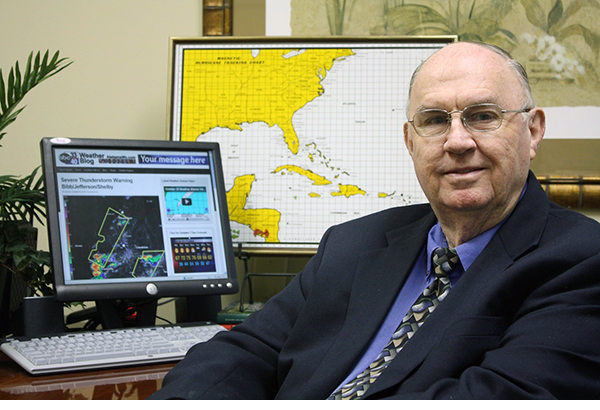With The Atlantic Hurricane Season About To Come In Full Force, Here’s How You Can Prepare
With the imminence of the prime-time Atlantic hurricane season steadily approaching, it’s important to know the weather safety tips as anyone that lives on the coastline could be impacted at any time. While forecasting technology has made great strides since it was first introduced, there’s still a lot of uncertainty when it comes to how you can protect yourself as well as your properties as there are many impacts which can be introduced by a hurricane. It’s important to know what you can do before hurricane season, when a watch or warning is issued, as well as prior to the time at which a hurricane is projected to make landfall.
Before hurricane season arrives, the first thing to have ready is making sure your home meets building codes for withstanding hurricanes, this also includes storm shutters. These shutters can help protect your home when the strong winds from hurricanes batter your property. Having the proper tools, supplies and first aid kits are also crucial. These tools should include plenty of batteries, flashlights, a battery-powered radio as well as the essentials such as water, non-perishable foods, as well as important documents such as personal identification. Make sure to unclog any drain gutters and downspouts nearby, or on your property to assure that less flooding occurs. A threat to look for if you live on the coast is storm surge. The best way to combat this issue if it were to occur is to have a sump pump ready with battery backup to remove inundating stormwater. Knowing all of the evacuation routes is also key, as many residents will flee via the main highways and roadways. It’s best to get out of harm’s way as soon as possible, as you can get stuck with the clusters of traffic. Unfortunately, some places on the coastline only have one way in and out and making sure you’re prepared as soon as possible is more ideal.
When a watch or warning is issued, it’s important to secure outside objects and bring them indoors, as they can pose a threat to damaging windows when the wind picks up. These objects include lawn furniture, trash cans, garden equipment, clotheslines, as well as hanging plants. After securing these objects, you should then turn off electricity, water and propane gas. With electricity running, it can potentially lead to fire hazards as flooding can occur and run directly into households causing sparks to ignite the flames. With the flooding also comes polluted water which can lead into households if water is left running, even after the hurricane. From there you should protect windows with plywood boards on top of the storm shutters. Using this as double protection is crucial in assuring that the windows don’t blow in. If you own any pets, make sure to pack the essentials such as a drinking and eating bowl, as well as have gallons of water and food for them. If you are called to evacuate, do so. Do not hesitate and wait until last minute as you can get stuck in harm’s way.
When the storm hits, if you decide to hunker down on your property, or asked to shelter in place, make sure stay in a secure innermost room away from windows. The windows have the potential to break, even with them being boarded up and secure. Winds from a hurricane can reach upwards of 157 MPH (252 KM/H) or higher, which can lead to total roof failure and wall collapse. It’s important to know that a lull often indicates the storm’s eye is passing over, and that the storm is not over. When this occurs, you should wait for authorities or local weather radio to announce that the danger has passed, as well as closely monitor announcements via an NOAA or regular radio.
When the hurricane finally passes, it is crucial to monitor local media for emergency information, as well as following instructions from public safety officials. You should always stay away from downed utility wires, as you should assume that the wire is still active. Remember the phrase, “turn around, don’t drown” as you should never drive through flooded roadways. Cars can be swept away in just two feet of moving water. Take photos of damage in all areas of your property to document for insurance. Hire a professional to check on electrical issues, as well as other areas of your home such as the septic tanks. It’s crucial to not wait on fixing these issues, as more problems can arise. Be sure to also check on family, friends, and neighbors. Reach out and give a helping hand to all of those in need, as working together as a team can help mend the wounds, as well as help start the rebuilding process much faster. Hurricanes are something that unfortunately the world cannot control, so it’s important to know all of this to help make the process much easier to deal with, as well as help save lives.
For more information on weather preparedness and safety, click here!
© 2018 Weather Forecaster Michael Ames
AlabamaWX is pleased to partner with the Global Weather and Climate Center team for outstanding posts about our atmosphere. Visit them at https://www.globalweatherclimatecenter.com for more great information!
Category: Partner News Stories


















